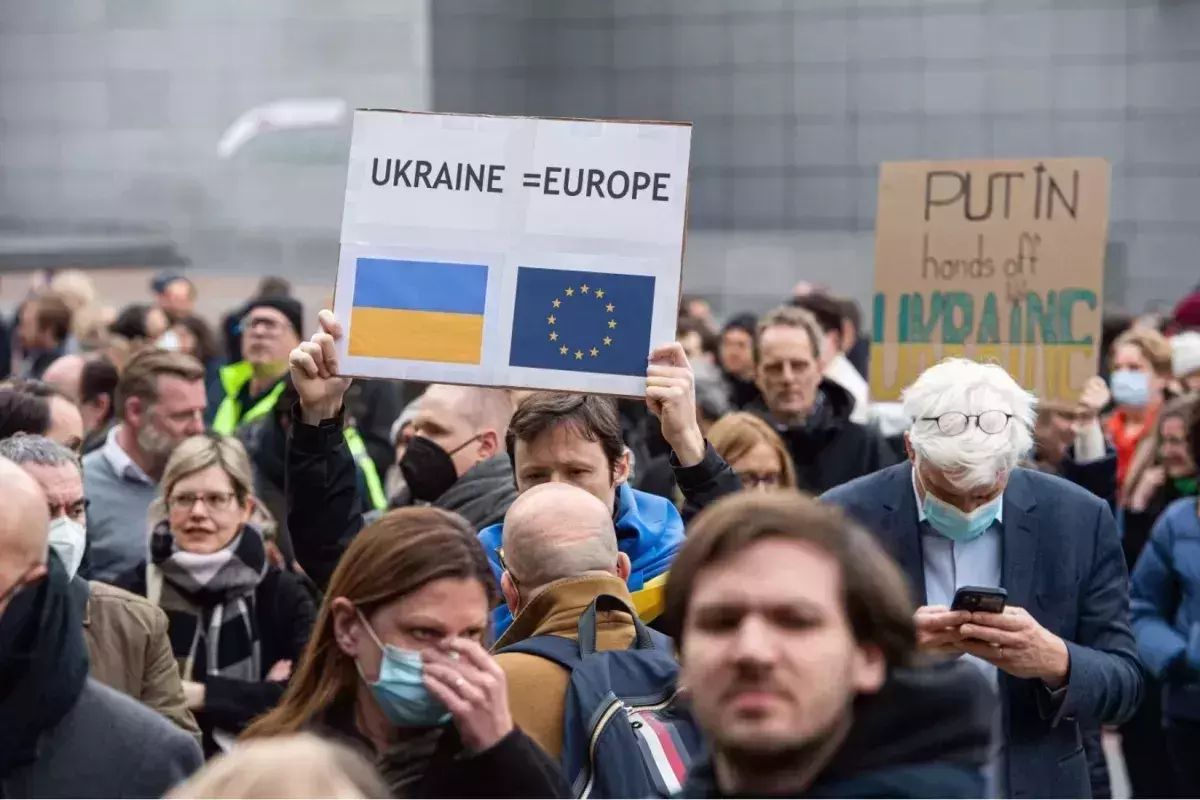
Can Europe afford another war?
text_fieldsHopes that the Russian invasion of Ukraine, which started on February 22, 2022, will come to a temporary pause, are misplaced with Vladimir Putin having called on the military to fight more aggressively. Russian Foreign Minister Sergey Lavrov has threatened that the military will make tough decisions if Ukraine does not comply with Moscow's decisions. There are signs that it is working. In the border provinces including Kherson, the intensity of the winter-cold bombing has increased sharply. Even a maternity hospital was destroyed in Moscow's shelling. With fear of war increasing, the exodus from these regions has increased since Christmas Day. Russia has also started training 250,000 new soldiers to intensify the war. However, Ukraine is desperately trying to regain Crimea, which was annexed by Russia in 2014. In this Ukraine has the support of NATO and the US. Because NATO and the European Union are determined to teach Russia a lesson, and because Putin is unwilling for mediation talks, the United Nations' intervention has no effect. No one even pays heed to its requests. Russia's invasion of Ukraine has become another red underline on the stark fact that the United Nations has become ineffective in the new era.
Also read: Two billion Euros to be taken from EU's peace facility budget to help Ukraine
While the unrest in Ukraine remains unresolved and the social and economic unrest in European countries intensifies, the Kosovo-Serbia border is also becoming tense. This is reminiscent of the 1998 genocide. Of the population of 1.9 million, 92% are ethnic Albanians and 6% are Serbs. The statement of Kosovo Prime Minister Albin Kurti hints that the support of Belgrade and the blessing of Moscow are behind the barricades and violent incidents set up by the Serbs in Mitrovica in northern Kosovo. He has therefore sought the support of NATO and the European Union to end the conflict. Kosovo Interior Minister Shelal Svak has accused Serbian President Aleksandar Vucic of giving in to Russia's influence and encouraging Serb nationalists living in Kosovo to destabilize the country. Recognizing Russia's interests in the Balkans, the European Union and the United States have called for the removal of barricades and an end to Serbia's support for the rebels. Meanwhile, Vučić ordered the Serbian army to prepare for heavy fighting. The visit of Army Chief General Milan Mojsilovic and the Minister of Defence to the Kosovo border and inspecting military preparedness have added to the tension in the region. If this conflict escalates into war because of NATO's military presence there, the problem will be further complicated. As a result, Europe as a whole will be transformed into a troubled region. And that would amount to throwing Europe back into World War II.
Also read: Kosovo-Serbia border tensions rise
The ethnic conflict in northern Kosovo is believed to have reached a fever pitch because of Putin's shrewdness. His ingenious idea is that the easiest way to provoke Ukraine and pressure the European Union is to spread conflict and fear of war into the Balkans. China also believes that it can undermine the prevailing European influence economically and socially. Therefore, China is tacitly approving Russia's interventions in Europe. Europe, on the other hand, has not adequately addressed the issue of Ukrainian refugees. Germany and Britain are in the grip of recession. All governments are afraid that it will spread to other countries. In this situation, the question arises whether Europe has the strength to sustain another long and more territorially destructive war. They also fear that growing extreme racism and anti-refugee mind-setism in Europe could lead to civil strife. France is already showing such signs. In short, Europe is being forced to enter the new year with a vow to overcome not only recession but also an atmosphere of war.
Also read: Massive staff shortages: Germany to ease rules for immigration of skilled workers





